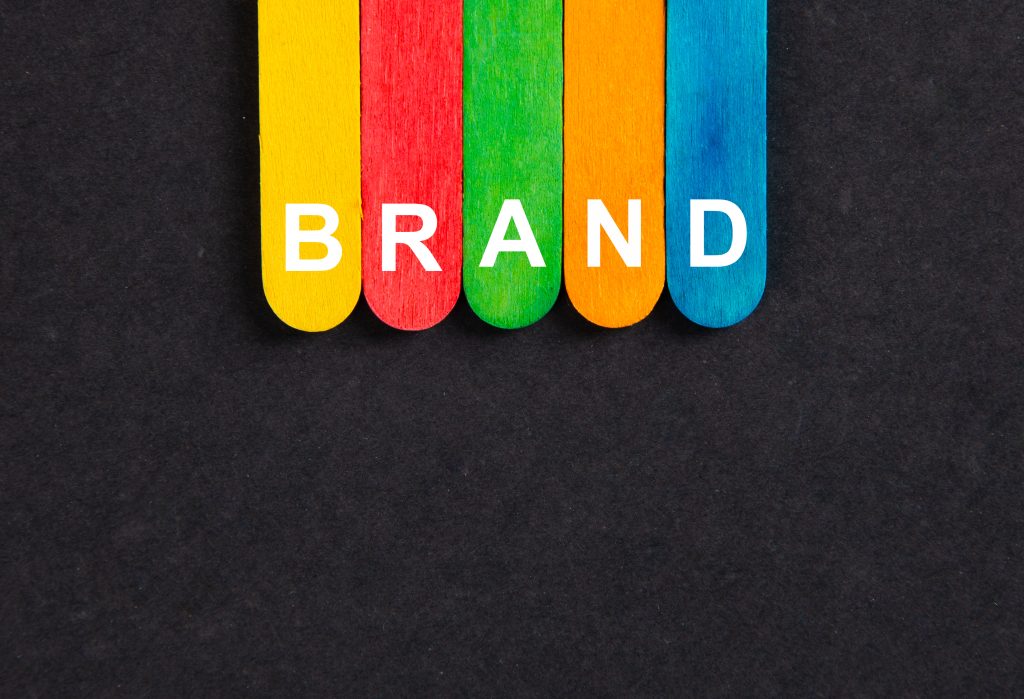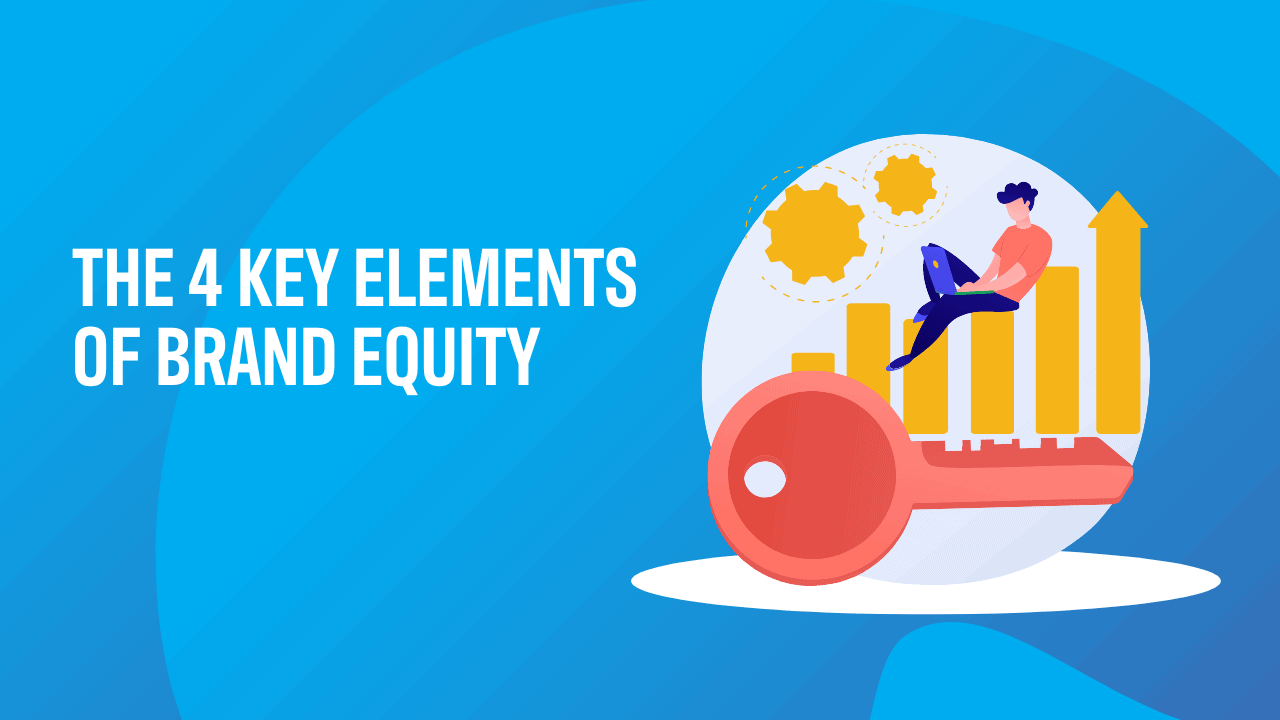Why do some businesses seem to dominate their markets while others struggle to be noticed? The difference often comes down to brand equity. When customers instantly recognize your name, associate it with positive qualities, and choose you over competitors, your brand has achieved something far more powerful than visibility. It has built equity. Understanding the elements of brand equity is crucial for this process.
Brand equity is the value your business earns from recognition, trust, and loyalty. It is what allows customers to pay more for one brand over another, even when the products are similar. Think of it as the reputation and goodwill that live in your customers’ minds. Strong equity doesn’t just boost sales today; it creates long-term resilience, making it easier to launch new products, grow market share, and stand out in a crowded space.
For small businesses, understanding brand equity is especially important. Building awareness, shaping positive associations, and earning loyalty can turn a local company into a trusted name that people return to again and again.
What Is Brand Equity?

Brand equity is the added value a business gains through its brand name and reputation. In practice, it’s the intangible worth customers assign to your company or products. In other words, brand equity represents how much your brand is trusted, recognized, and preferred by buyers. When customers trust your name and believe in your quality, they’re often willing to pay more and stay loyal. For example, Apple can charge premium prices for its iPhones because of its strong brand equity. This value premium comes from customers’ familiarity with and positive perceptions of the brand.
Strong brand equity has real business benefits. It lets you command higher prices, enjoy repeat customers, and even attract better deals from suppliers. Studies find that companies with highly loyal customers grow revenue 2.5 times faster than competitors and deliver much higher returns to shareholders. For small businesses, brand equity translates into trust in your local market and a sustainable competitive edge. In short, brand equity – essentially your brand’s reputation and goodwill: becomes one of your most valuable assets.
Building brand equity starts with four key elements. These pillars are the foundation of how customers perceive your brand. They include brand awareness, brand associations (distinctiveness), perceived quality, and brand loyalty. Each element strengthens the others, creating a virtuous cycle of recognition and trust. Let’s explore each element and how small businesses can leverage them.
Core Elements of Brand Equity
Brand Awareness
Brand awareness is the foundation of equity: it’s how easily customers recognize your brand. If people can’t recall your name or logo, they won’t buy from you. In practical terms, brand awareness means being visible and memorable when consumers think of your industry or local market. For example, when shoppers in your city hear about your product or service, do they immediately think of your business? High awareness makes it more likely they’ll choose you first.
- Consistent Messaging: Use your logo, colors, and tagline consistently in everything you do. From your website to social posts, make your brand look and sound the same. This builds recognition so people remember your brand.
- Content & social media: Create useful, on-brand content to share. Regular blog posts, videos, and social updates help new customers discover you. For example, publishing blog articles optimized for SEO boosts organic traffic, and active social media posts engage your community. JavaLogix’s Social Media Marketing and Content Marketing services can help small businesses use these channels effectively.
- Local SEO and Advertising: Ensure your business appears in local search (Google My Business, Yelp, etc.) so neighbors find you. Paid ads can also increase awareness quickly: consider targeted campaigns to show up at the top of search results or social feeds for relevant keywords.
Brand Associations (Distinctive Identity)
Brand associations are the thoughts and feelings customers connect to your brand. This is about what makes your business unique. Do people associate your brand with innovation, friendly service, or great value? Positive associations like quality craftsmanship or a fun brand personality: differentiate you in the market. In effect, each distinctive trait of your brand adds to its equity.
To build strong associations:
- Define Your Niche: Clearly communicate what sets you apart. Maybe you use special ingredients, have exceptional customer service, or cater to a specific audience. Highlight those unique selling points in your branding and messaging.
- Tell Your Story: Craft a brand story that resonates with your customers’ values. For example, if you’re a family-owned bakery, share your heritage and passion for baking. Stories and brand values create emotional links that people remember.
- Professional Branding: Invest in a cohesive visual identity and brand voice. A polished website, professional logo, and consistent design signal quality and instill confidence. Consider JavaLogix’s Branding services to develop a brand strategy, logo, and style that make your business stand out.
- Partnerships and Endorsements: Collaborate with local influencers or community events. If respected figures or organizations endorse you, that association rubs off as trust for your brand.
Perceived Quality
Perceived quality is how customers judge the value of your products or services. It’s subjective, but extremely powerful. Even if your costs are low, if customers believe your brand is high-quality, they’ll treat it as such. Think of it as the “reputation for excellence” that customers grant you. Strong perceived quality builds equity because customers expect good performance and feel reassured choosing your brand.
To boost perceived quality:
- Deliver Consistency: Ensure every customer experience is positive. This includes product performance, service level, and even packaging. Small details matter – clear, professional-looking labels or a polished website make a big difference.
- Invest in Design: A user-friendly website and professional design (graphics, logo, packaging) convey competence. If people encounter a smooth, well-designed site or store, they’re more likely to perceive your brand as reliable. For instance, a website designed by JavaLogix’s Web Design team can project credibility and improve first impressions.
- Be Transparent: Share testimonials, case studies, or before-and-after examples. Let potential customers see proof of your quality. A well-crafted portfolio or customer story on your website reinforces that you deliver results.
- Quality Customer Service: Rapid, friendly support enhances quality perception. Handling inquiries and issues effectively shows customers you care about their experience and stands for quality service.
Each positive interaction reinforces the idea that your brand offers high value. Over time, even competing on price becomes less important because customers trust your brand to meet or exceed expectations.
Brand Loyalty

Brand loyalty is the commitment of repeat customers who choose your brand again and again. Loyal customers are the ultimate goal of brand equity. They don’t just buy once; they come back regularly and often advocate for you. High loyalty means customers are less sensitive to price increases and more likely to forgive mistakes, because your brand has earned their trust.
Building loyalty involves:
- Excellent Customer Experience: Go beyond the sale. Provide great after-sales support, thank-you notes, or follow-up surveys. A positive overall experience makes people feel valued. For example, using JavaLogix’s reputation management platform to gather feedback and respond to reviews shows customers you listen and care.
- Loyalty Programs and Incentives: Reward repeat business. Offer discounts, free upgrades, or referral bonuses to loyal customers. Even a simple “thank you” email with a special offer can encourage a second purchase.
- Stay Connected: Use email newsletters or social media to keep customers in the loop. Share useful content or updates to remind them of your brand. Reminding customers of your value keeps you top-of-mind.
- Ask for Feedback and Reviews: Satisfied customers who leave positive reviews essentially endorse your brand. Highlight these testimonials on your website and social profiles. Positive reviews on Google, Yelp, or social media serve as social proof that your brand is trustworthy.
Building Brand Equity for Small Businesses
For small businesses, brand equity creates long-term value and trust. Start by making sure people know your name. Local SEO helps your business appear in nearby searches, while consistent social media marketing keeps you visible in your community.
Next, define what makes your business unique. A clear brand identity, including your logo, colors, and communication style, helps customers remember and connect with you. Strong branding highlights what sets you apart, whether it is excellent service, craftsmanship, or a compelling story.
Quality is just as important. Every touchpoint, from your website to customer service, should reflect professionalism and reliability. A polished online presence and consistent delivery show customers they can count on you.
Finally, focus on loyalty. Follow up with customers, respond to reviews, and share testimonials. Positive word of mouth and repeat business reinforce your brand’s value. By building strong relationships, you turn satisfied buyers into advocates.
Brand equity takes time, but the results are powerful. Customers choose your business more often, recommend you to others, and stay loyal even when competitors compete on price. Ready to strengthen your brand? JavaLogix can help you define your unique identity, improve awareness, and build loyalty that drives growth
Frequently Asked Questions
What is brand equity and why is it important?
Brand equity refers to the value a brand adds to a product or service, making it more desirable to consumers. It’s important because strong brand equity can lead to customer loyalty, higher sales, and the ability to charge more compared to competitors.
How do brand awareness and brand loyalty affect brand equity?

Brand awareness helps customers recognize a brand, while brand loyalty means they choose that brand repeatedly. Both these factors contribute to brand equity by creating a strong connection between the brand and its customers.
What role does perceived quality play in building brand equity?
Perceived quality is how customers view the quality of a brand’s products or services. If customers believe a brand offers high-quality products, they are more likely to trust and choose it, which helps improve overall brand equity.
Can brand associations influence brand equity, and how?
Yes, brand associations, like logos, slogans, or celebrity endorsements, can strongly influence brand equity. Positive associations can enhance a customer’s perception of the brand, making it more memorable and valuable.
How can companies measure their brand equity effectively?
Companies can measure brand equity through surveys, customer feedback, and analyzing sales data. They can also look at brand loyalty metrics or social media engagement to assess how well their brand resonates with consumers.
TL;DR Brand equity is the value a brand holds in customers’ minds, influenced by four key elements: brand awareness, brand distinction, perceived quality, and brand loyalty. Brand awareness measures customer familiarity, while brand distinction helps a brand stand out. Perceived quality focuses on how customers view a brand’s quality, and brand loyalty is about customers’ commitment to repeat purchases. To strengthen brand equity, businesses should enhance brand awareness through consistent marketing, highlight unique aspects for distinction, ensure high-quality experiences, and foster customer loyalty through positive interactions and programs.

